Google opens doors on UK data center ahead of Trump visit
The Waltham Cross data center opening comes alongside £5 billion in investment across the country

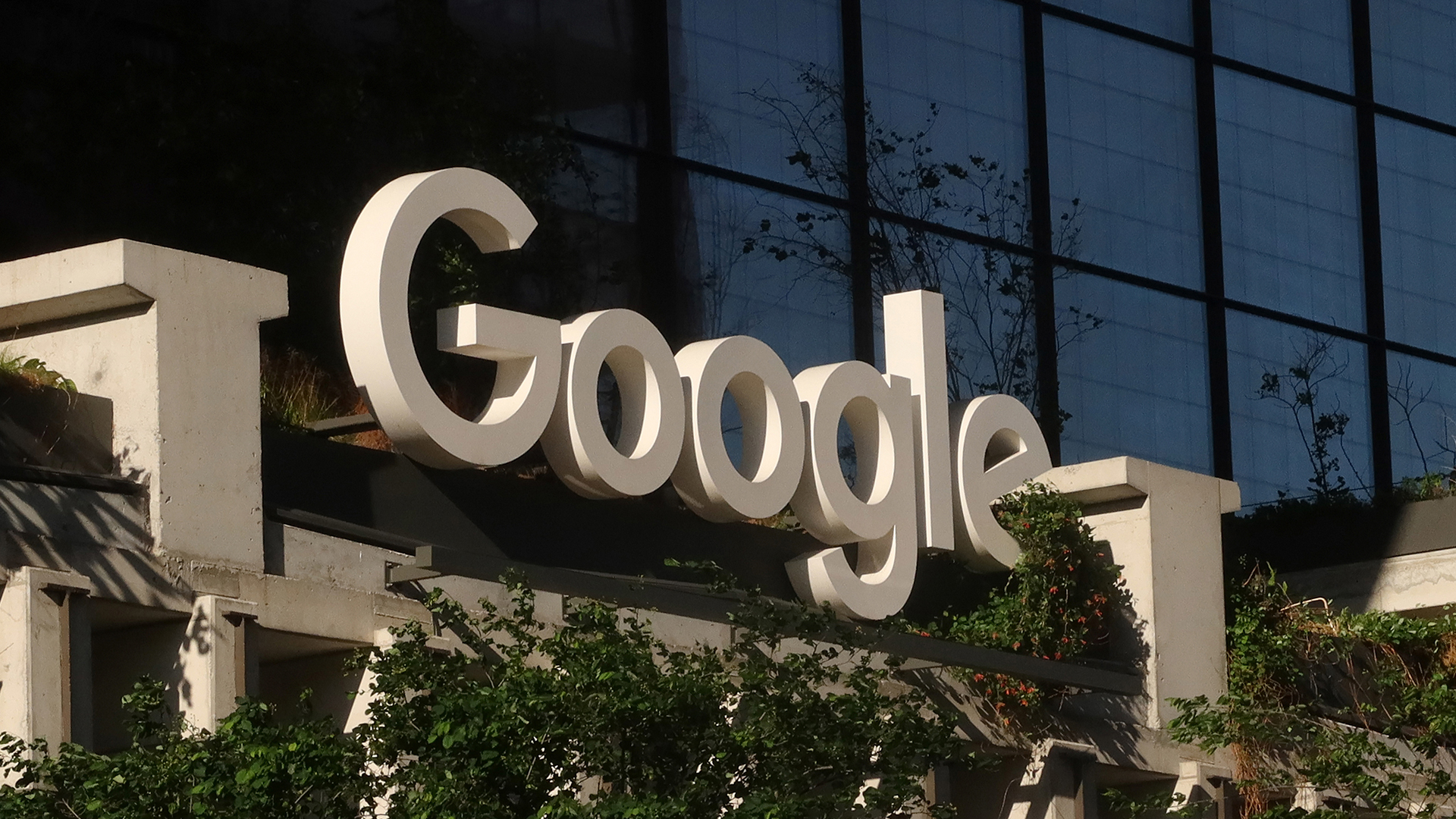
Google has officially opened the doors of its $1 billion data center in the UK, part of a £5 billion investment into local infrastructure and the tech giant's first data center in the country.
The opening of the data center in Waltham Cross, in Broxbourne on the edge of London, comes as US President Donald Trump is set to arrive in the UK for a state visit that is expected to include a series of deals between the US and UK on technology and nuclear power.
Google said in a statement that the "state of the art" data center would be used to help meet demand for AI-powered services including Google Cloud, Workspace, Search, and Maps.
The £5 billion investment includes data centers like the one at Waltham Cross, as well as Google's capital expenditure, R&D, and AI-related engineering over the next two years in the UK, including DeepMind, the British-founded AI science company bought by Google in 2014.
"Google's investment in technical infrastructure, expanded energy capacity and job-ready AI skills will help ensure everyone in Broxbourne and across the whole of the UK stays at the cutting-edge of global tech opportunities," said Ruth Porat, President and Chief Investment Officer at Alphabet and Google, in a statement.
Inside Waltham Cross
Google bought the 33-acre site in Waltham Cross in 2020, saying last year that the project "represents an investment of $1 billion dollars in the country".
Technical details about the data center have been sparse, but Google has been keen to share information about energy plans – no wonder given the sensitivity around energy and water use by data centers.
Sign up today and you will receive a free copy of our Future Focus 2025 report - the leading guidance on AI, cybersecurity and other IT challenges as per 700+ senior executives
Earlier this week, The Guardianreported that planning application documents for Google's next UK data center, in Thurrock in Essex, shows it will take up 128 acres and is expected to emit more than half a million tonnes of carbon dioxide a year – equivalent to 500 short-haul flights a week.
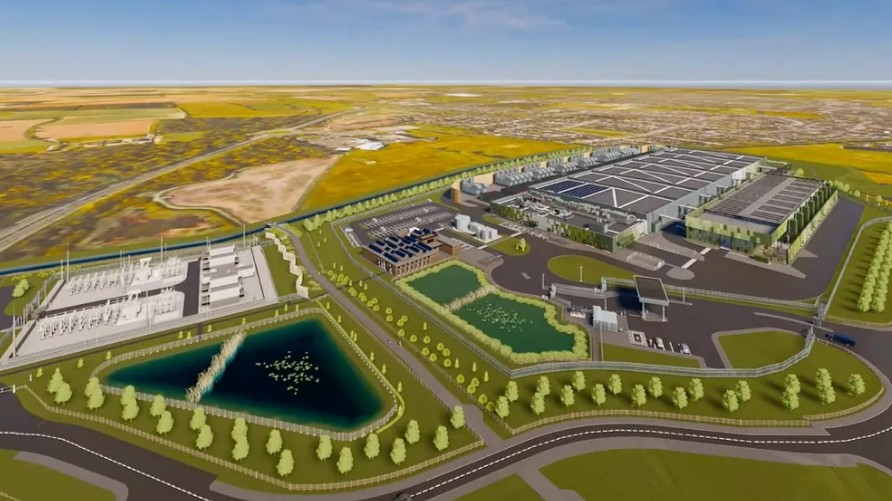
For the newly-opened Waltham Cross site, Google said it was designed to "minimize" environmental impact, including by using more advanced air cooling technology rather than traditional water-based cooling systems.
"The facility uses advanced air-cooling technology to limit water usage to domestic use and is also equipped to support off-site heat recovery, meaning heat from the data center can be re-routed and provided free of charge to help warm local homes, schools or businesses," the company said in a statement.
Google has also signed deals with local energy providers to encourage renewables, including a previously announced partnership with Scotland's ENGIE for wind generated energy as well as teaming up with Shell to use battery storage systems to help address intermittency issues with renewable sources.
Last year, Google said UK operations were "on track to operate at or near 90% carbon-free energy in 2025." This year, Google has adjusted its goal.
"Between the Shell alliance and Google's other clean energy initiatives, Google's UK operations are projected to run at or near 95% carbon-free-energy in 2026."
Keeping locals on board
The rise of AI has sparked a wave of data center construction, which isn't always welcome in locations where construction takes place.
In Waltham Cross, locals last year complained that noise from the construction site was keeping them awake at night, ruining local views and lowering house prices. The Daily Mail quoted one resident as saying: "I moved here for peace and quiet… It won't benefit me. It won't benefit locals."
Google said it had set up a community fund to be managed by Broxbourne Council to help support local economic development, and was "providing direct support" for local charities and social enterprises.
Councilor Corina Gander, Leader of Broxbourne Council, said in a statement provided by Google: "The Council has worked closely with Google to maximise the positive impact of the development. Google is heavily investing in community-based projects and is making an important contribution to the local economy."
Make sure to follow ITPro on Google News to keep tabs on all our latest news, analysis, and reviews.
MORE FROM ITPRO
Freelance journalist Nicole Kobie first started writing for ITPro in 2007, with bylines in New Scientist, Wired, PC Pro and many more.
Nicole the author of a book about the history of technology, The Long History of the Future.
-
 Will autonomous robotics leap forward in 2026?
Will autonomous robotics leap forward in 2026?In-depth Connectivity and cost benefits remain barriers, despite breakthroughs in physical AI
-
 AWS and NTT Data team up to drive legacy IT modernization in Europe
AWS and NTT Data team up to drive legacy IT modernization in EuropeNews Partnership between AWS and NTT DATA aims to boost AWS European Sovereign Cloud capabilities
-
 Google drops $4.75bn on data center and energy firm Intersect
Google drops $4.75bn on data center and energy firm IntersectNews The investment marks the latest move from Google to boost its infrastructure sustainability credentials
-
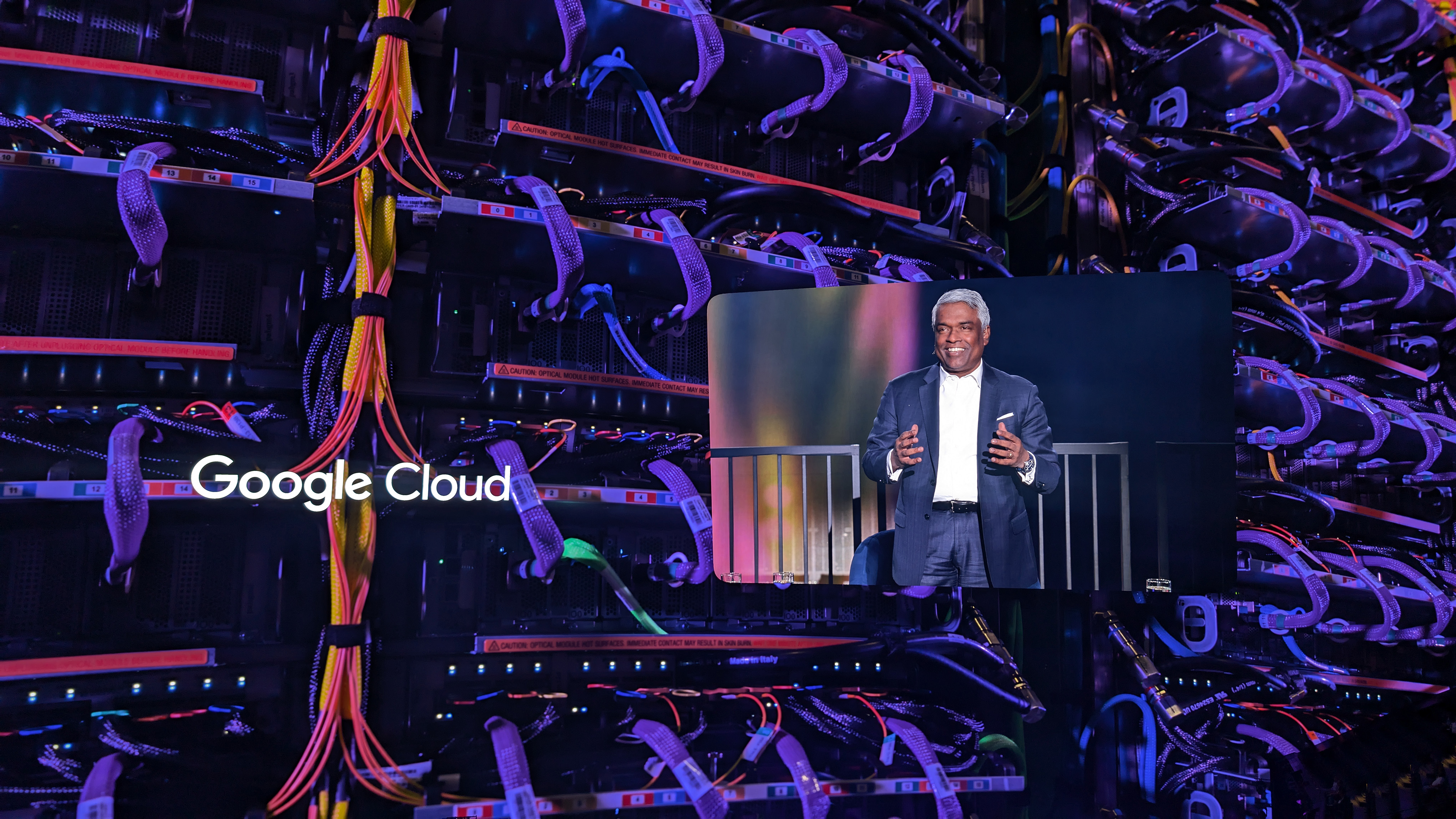 What is a tensor processing unit (TPU)?
What is a tensor processing unit (TPU)?Explainer Google's in-house AI chips are the most notable alternative to Nvidia at the enterprise scale
-
 Google just confirmed the location of its first small modular reactor
Google just confirmed the location of its first small modular reactorNews Developed by Kairos, Google's first small modular reactor will be located in Tennessee, with operations beginning in 2030.
-
 Google says it will pause AI data centers to help overloaded grids
Google says it will pause AI data centers to help overloaded gridsNews Agreements with two utility companies will reduce AI data center demand during peak consumption times
-
 Google emissions have surged 51% in five years – but it’s making solid progress in data center efficiency
Google emissions have surged 51% in five years – but it’s making solid progress in data center efficiencyNews While overall carbon emissions have increased significantly, the company is making solid progress in bolstering data center energy efficiency.
-
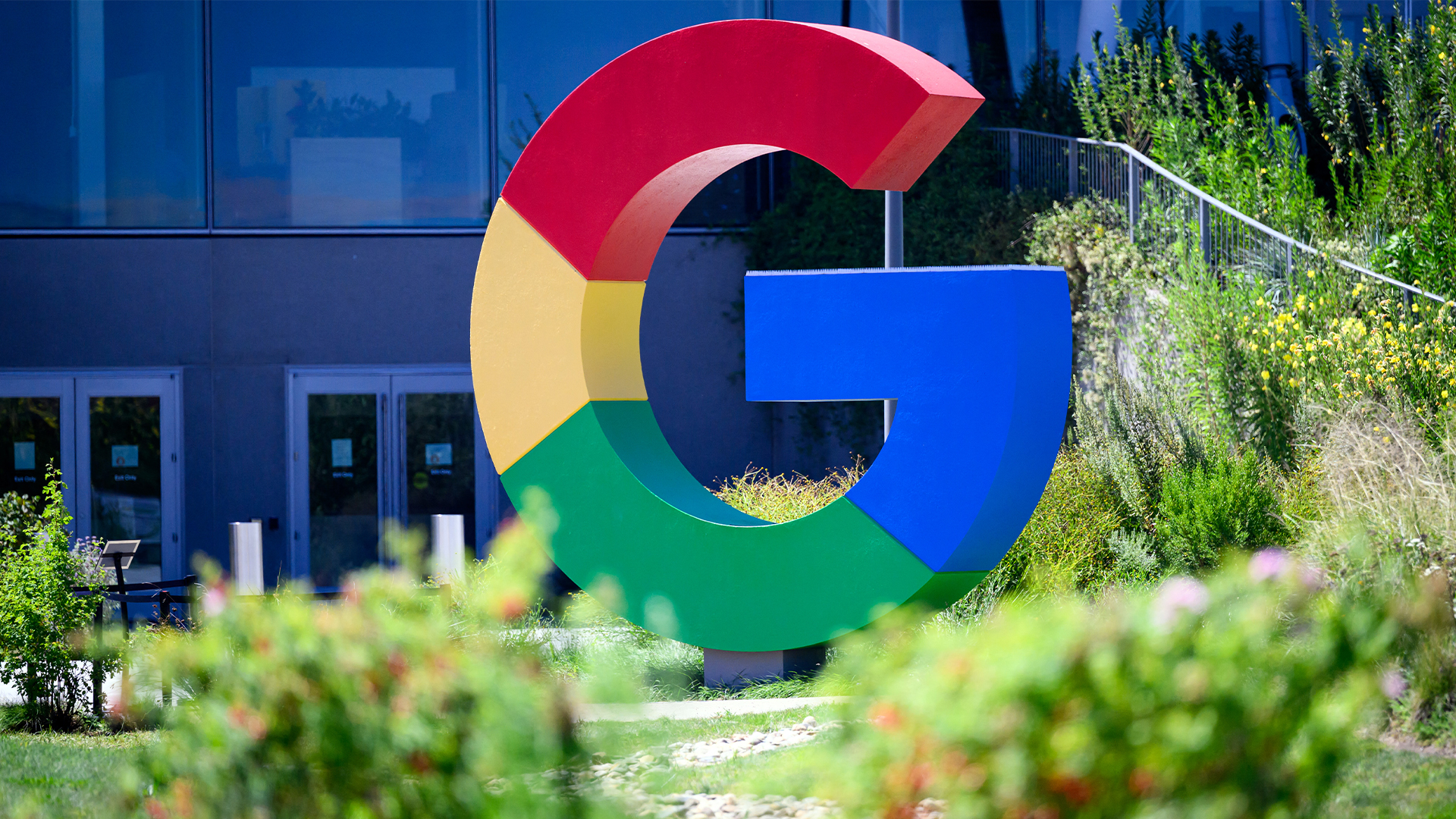 Google is worried about AI power failures – so it wants to train electricians
Google is worried about AI power failures – so it wants to train electriciansNews Lost your job to AI? Google might have a new career opportunity for you
-
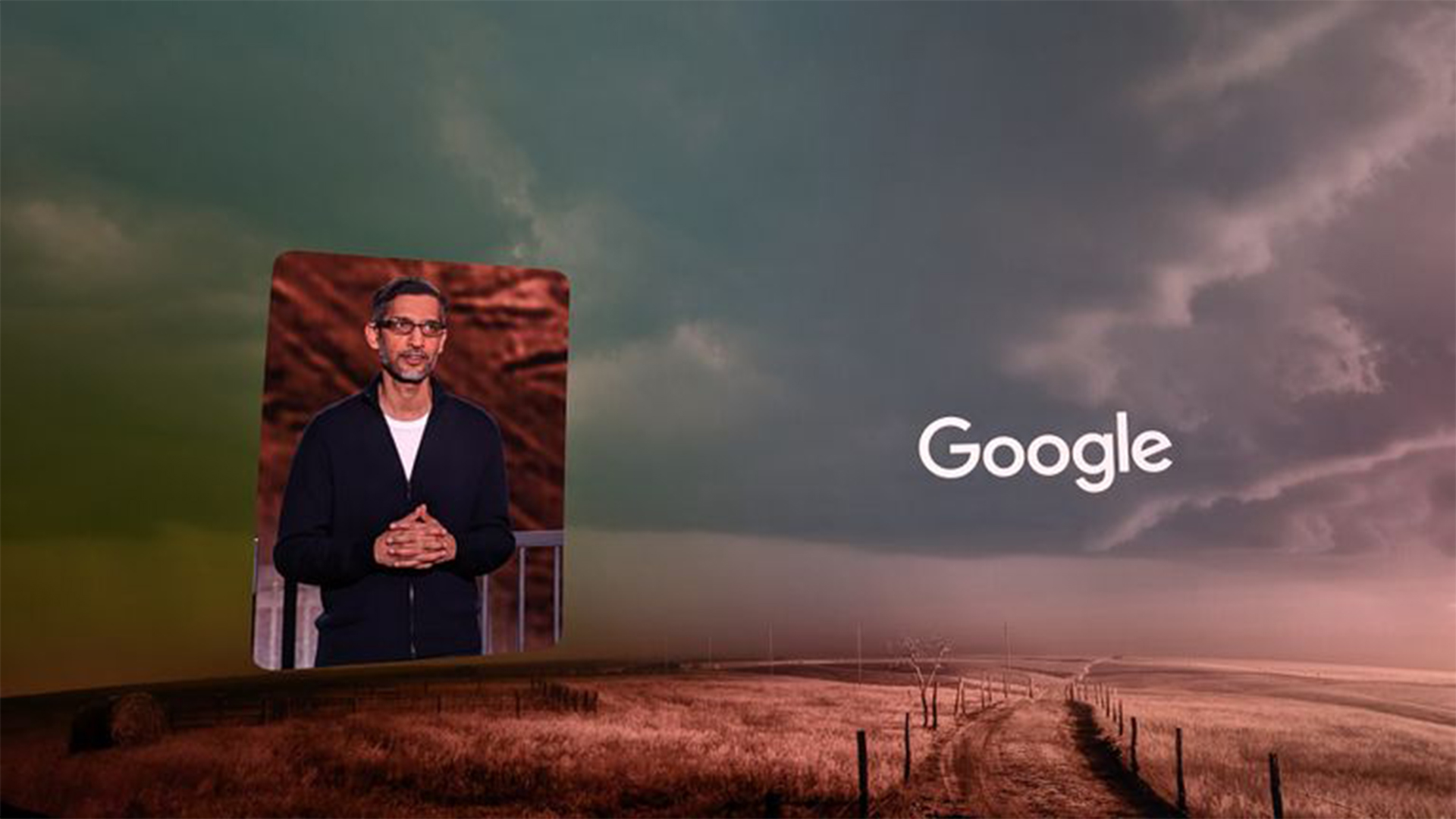 Google shakes off tariff concerns to push on with $75 billion AI spending plans – but analysts warn rising infrastructure costs will send cloud prices sky high
Google shakes off tariff concerns to push on with $75 billion AI spending plans – but analysts warn rising infrastructure costs will send cloud prices sky highNews Google CEO Sundar Pichai has confirmed the company will still spend $75 billion on building out data centers despite economic concerns in the wake of US tariffs.
-
 Meta wants to join the big tech nuclear club
Meta wants to join the big tech nuclear clubNews Meta has become the latest big tech company to explore the use of nuclear energy to power data centers.
